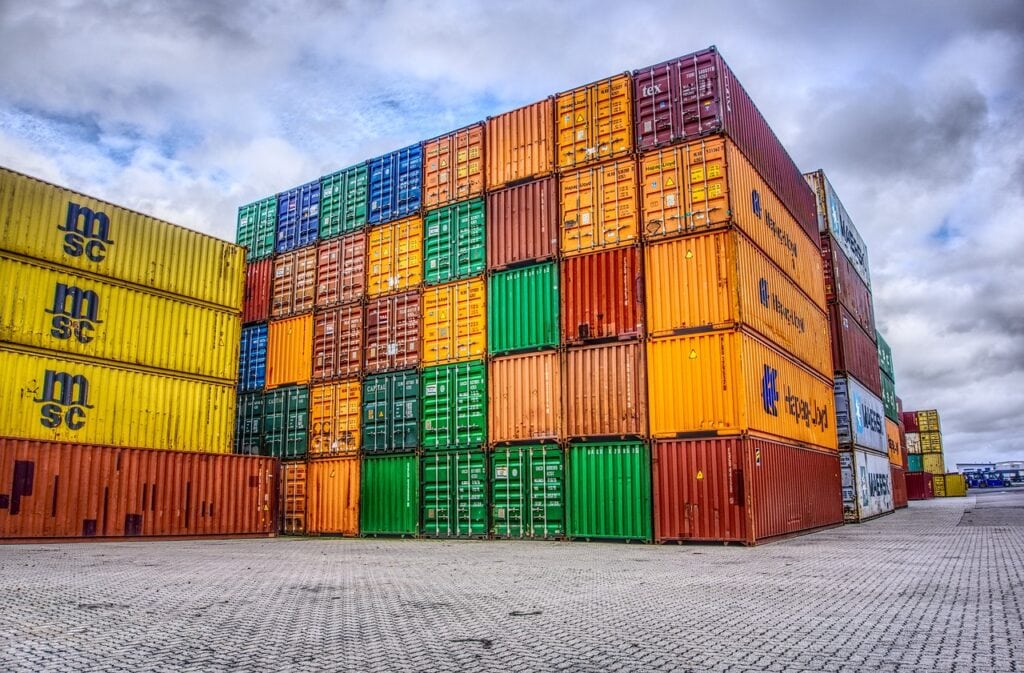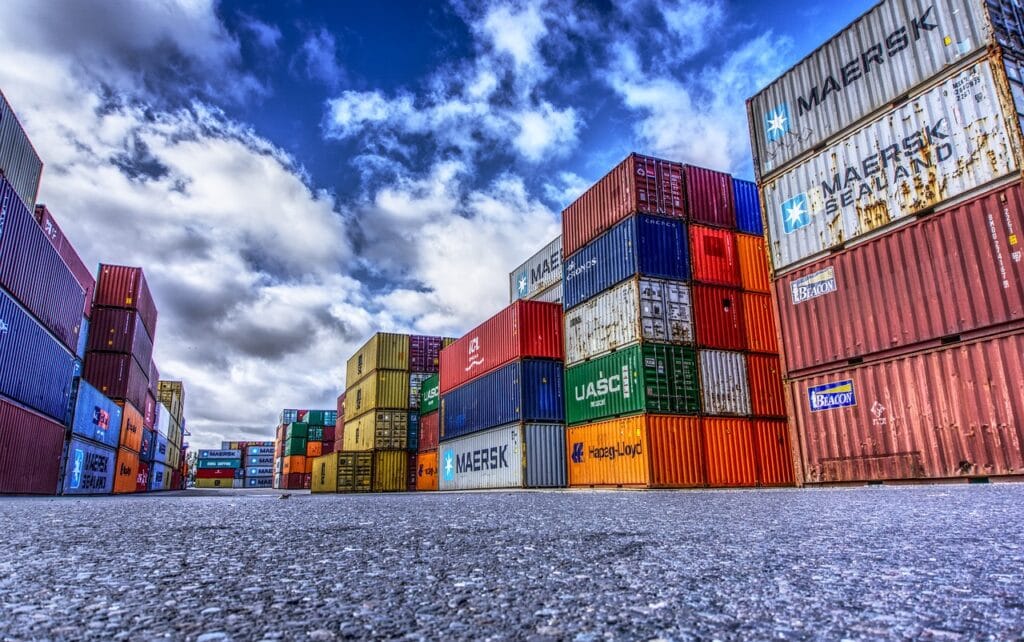The Ultimate Guide to Freight Management: Streamlining Your Logistics
Freight management is an essential component of modern logistics, ensuring the efficient movement of goods from one location to another. This guide aims to provide comprehensive insights into how businesses can optimize their freight operations, reduce costs, and enhance overall efficiency through effective freight management strategies.
Enhance Your Freight Management with Top Solutions
For businesses seeking to optimize their logistics operations, utilizing the right management software is crucial. Cario's freight management systems offer comprehensive solutions tailored to the unique needs of Australian companies. Their freight management software ensures efficient route planning and inventory control. Additionally, Cario provides advanced transport management software that integrates seamlessly with existing systems, making it easier to manage complex logistics operations.
Understanding Freight Management
Freight management involves the planning, execution, and control of freight operations to ensure the timely and cost-effective delivery of goods. The key components of freight management include:
- Route Optimization: Utilizing advanced algorithms to determine the most efficient routes for transporting goods. This reduces fuel consumption, transit times, and overall costs.
- Carrier Selection: Choosing the best carriers based on cost, reliability, and service quality. This involves negotiating rates, managing relationships, and ensuring that the chosen carriers can meet delivery schedules.
- Freight Consolidation: Combining multiple shipments into a single load to maximize load efficiency and reduce transportation costs. This strategy is particularly effective for small shipments that may not require full truckload services.
Implementing a robust freight management system can lead to significant improvements in logistics performance, including reduced transit times, lower shipping costs, and enhanced customer satisfaction. For businesses operating in competitive markets, effective freight management can provide a critical advantage.
Key Elements of Freight Management
Understanding the various elements that constitute freight management can help businesses in developing a more effective strategy:
- Transportation Planning: Coordinating the movement of goods by considering factors like delivery deadlines, cost constraints, and customer requirements.
- Inventory Control: Managing inventory levels to ensure that products are available when needed while minimizing storage costs.
- Warehouse Management: Efficiently handling the storage, picking, and packing of goods within a warehouse to support streamlined transportation.
Freight management is not just about moving goods; it involves an integrated approach that combines planning, execution, and monitoring to ensure that logistics operations are smooth and efficient.
Benefits of a Freight Management System
A freight management system (FMS) provides businesses with tools to automate and optimize their freight operations. Key benefits of implementing an FMS include:
- Cost Reduction: By optimizing routes and consolidating shipments, an FMS helps reduce transportation costs. Automated freight auditing also ensures that invoices are accurate, preventing overpayments.
- Improved Visibility: Real-time tracking and reporting provide greater visibility into freight operations, enabling better decision-making and proactive problem-solving. This transparency helps businesses monitor the status of their shipments and respond to issues quickly.
- Enhanced Efficiency: Automation of manual processes reduces the time and effort required to manage freight, leading to increased productivity. This includes automated booking, documentation, and communication processes, which streamline operations and reduce the risk of errors.
Investing in top-tier logistics management software can transform your business operations. Cario's transport management software helps companies reduce costs and improve delivery times. Their freight management systems are known for their reliability and efficiency, making them a preferred choice for businesses across Australia. By integrating these systems, companies can achieve seamless logistics operations and stay competitive in the market.
Improving Freight Management with Technology
Technology plays a crucial role in modern freight management. Some of the technologies that enhance freight management include:
- Cloud-Based Systems: Allowing real-time access to data from anywhere, making it easier to manage freight operations remotely.
- IoT Devices: Providing real-time tracking of shipments, which helps in monitoring the condition and location of goods throughout the supply chain.
- Artificial Intelligence: Enhancing decision-making by analyzing data and predicting potential issues, enabling proactive measures.
Key Features of a Transport Management System (TMS)
A transport management system (TMS) is a software platform designed to manage and optimize transportation operations. Implementing a TMS can significantly enhance a company's logistics capabilities by providing a comprehensive suite of tools for managing every aspect of the transportation process. Essential features of a TMS include:
- Route Planning: Advanced algorithms help determine the most efficient routes for shipments, considering factors such as distance, traffic, and delivery windows. This reduces fuel consumption and transit times.
- Carrier Management: Tools to manage relationships and negotiate rates with carriers, ensuring that the best options are selected based on cost, reliability, and service quality.
- Freight Auditing: Automated auditing of freight bills to ensure accuracy and identify discrepancies. This feature helps prevent overcharges and ensures that all invoices are correct.
- Real-Time Tracking: Visibility into the location and status of shipments throughout the transportation process. Real-time tracking allows businesses to monitor their shipments and provide accurate updates to customers.
By leveraging the capabilities of a TMS, businesses can enhance their logistics operations, leading to improved service levels and reduced transportation costs. Additionally, a TMS can integrate with other supply chain systems, providing a seamless flow of information and improving overall supply chain visibility.
Selecting the Right TMS
Choosing the right TMS for your business involves considering several factors:
- Scalability: Ensure the system can grow with your business and handle increasing volumes of shipments.
- Integration: The TMS should easily integrate with existing systems, such as ERP and WMS.
- User-Friendliness: A user-friendly interface can reduce the learning curve and improve adoption among employees.
Implementing a Freight Management Strategy
To implement a successful freight management strategy, businesses should consider the following steps:
- Assess Current Operations: Evaluate existing logistics processes to identify areas for improvement. This involves analyzing current performance metrics and identifying bottlenecks or inefficiencies.
- Define Objectives: Set clear goals for what the freight management strategy aims to achieve, such as cost reduction, improved delivery times, or enhanced customer satisfaction. These objectives should be specific, measurable, achievable, relevant, and time-bound (SMART).
- Select the Right Technology: Choose a freight management system or TMS that meets the specific needs of the business. Consider factors such as scalability, integration capabilities, and ease of use.
- Train Staff: Ensure that employees are trained on how to use the new systems and processes effectively. This includes both initial training and ongoing support to address any issues that arise.
- Monitor and Adjust: Continuously monitor the performance of the freight management strategy and make adjustments as needed to achieve desired outcomes. Use key performance indicators (KPIs) to track progress and identify areas for improvement.
By following these steps, businesses can develop and implement a freight management strategy that drives efficiency and enhances logistics performance. This proactive approach ensures that the company remains competitive and responsive to market changes.
Key Performance Indicators (KPIs)
Tracking the right KPIs is essential for measuring the success of your freight management strategy. Some important KPIs to consider include:
- On-Time Delivery Rate: Measures the percentage of shipments delivered on time.
- Freight Cost per Unit: Calculates the cost of shipping per unit, helping identify cost-saving opportunities.
- Transit Time Variability: Monitors the consistency of transit times, identifying any deviations from expected schedules.
Future Trends in Freight Management
Freight management is essential for businesses looking to streamline their logistics operations and reduce costs. By leveraging advanced technologies such as freight management systems and transport management systems, companies can optimize their freight processes, improve visibility, and enhance overall efficiency. Implementing a well-defined freight management strategy can lead to significant improvements in logistics performance, contributing to the success and growth of the business.
Choosing a reliable partner in freight services can significantly enhance your logistics efficiency. Freight People stands out with their extensive expertise in freight management and technology-driven solutions. Their freight services in Australia are designed to meet diverse transportation needs, from interstate transport to specialized logistics management. Whether you're looking for a Freight broker in Melbourne or nationwide, Freight People offers customized solutions to streamline your operations.
As technology continues to evolve, several key trends are expected to shape the future of freight management:
- Artificial Intelligence and Machine Learning: AI and machine learning will play a critical role in optimizing freight operations, predicting demand, and improving decision-making processes. These technologies can analyze vast amounts of data to identify patterns and make recommendations for route optimization, carrier selection, and inventory management.
- Blockchain Technology: Blockchain offers a secure and transparent way to manage and track shipments, ensuring that all parties have access to accurate and up-to-date information. This technology can help reduce fraud, improve traceability, and enhance trust between stakeholders.
- Internet of Things (IoT): IoT devices, such as sensors and GPS trackers, provide real-time data on the location and condition of shipments. This information can be used to monitor the status of goods, predict potential delays, and ensure that shipments are handled appropriately.
- Sustainability Initiatives: As environmental concerns become more prominent, businesses will focus on reducing their carbon footprint through more efficient transportation practices and the use of eco-friendly technologies. This includes optimizing routes to reduce fuel consumption, using electric or hybrid vehicles, and implementing green logistics strategies.
By staying abreast of these trends and incorporating them into their freight management strategies, businesses can ensure that they remain competitive and responsive to the evolving needs of the market. Embracing innovation and leveraging advanced technologies will be key to achieving long-term success in the logistics industry.
Conclusion
In conclusion, effective freight management is a critical component of modern logistics, offering numerous benefits in terms of cost reduction, improved efficiency, and enhanced customer satisfaction. By adopting the latest technologies and implementing best practices, businesses can optimize their freight operations and position themselves for success in an increasingly competitive market.
FAQs About Freight Management
What is a Freight Management System (FMS)?
A Freight Management System (FMS) is a software platform designed to streamline the planning, execution, and monitoring of freight operations. It helps businesses optimize routes, manage carrier relationships, consolidate shipments, and ensure timely deliveries. By leveraging an FMS, companies can reduce transportation costs, improve efficiency, and enhance visibility into their logistics processes. For comprehensive solutions, consider Cario's freight management systems.
How can Transport Management Software benefit my logistics operations?
Transport Management Software (TMS) offers numerous benefits, including route optimization, carrier management, and real-time tracking of shipments. It automates manual processes, reducing errors and increasing productivity. By using a TMS, businesses can achieve cost savings, improved delivery times, and better customer satisfaction. For example, Cario's transport management software provides robust features to enhance logistics efficiency.
What are the key features to look for in a Logistics Management Software?
When selecting Logistics Management Software, look for features such as real-time tracking, route optimization, freight auditing, and carrier management. Integration capabilities with other systems like ERP and WMS are also crucial. The software should be scalable, user-friendly, and offer comprehensive reporting tools. Solutions like Cario's logistics management software are designed to meet these needs, ensuring streamlined logistics operations.
How do Freight Brokers support logistics operations?
Freight brokers act as intermediaries between shippers and carriers, helping businesses find the best transportation solutions. They negotiate rates, manage relationships, and ensure that shipments are handled efficiently. By leveraging their expertise and industry connections, freight brokers like Freight People can provide tailored solutions for various logistics needs, including interstate transport and enterprise freight management.
Why is technology important in modern freight management?
Technology is crucial in modern freight management for improving efficiency, accuracy, and visibility. Advanced systems like FMS and TMS use algorithms and real-time data to optimize routes, track shipments, and automate processes. Technologies such as IoT, AI, and blockchain further enhance capabilities by providing real-time insights, predictive analytics, and secure transaction tracking. Companies like Freight People leverage technology to offer innovative solutions that enhance logistics performance and competitiveness.




